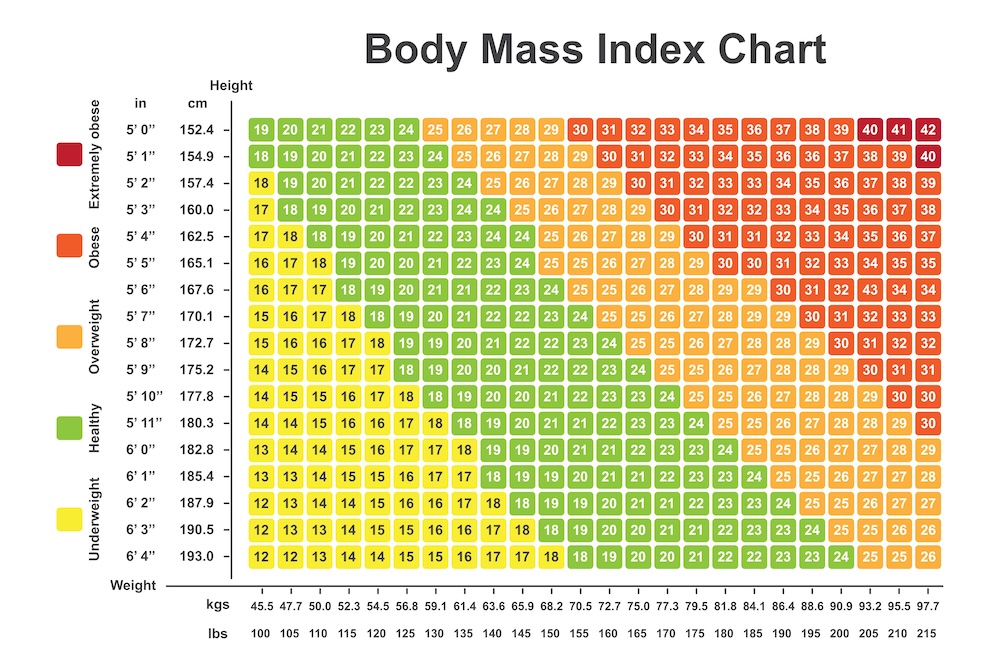ROUX-EN-Y
Roux-en-Y Gastric Bypass →
RNY gastric bypass
Gastric bypass surgery, also known as Roux-en-Y gastric bypass (RYGB), is a weight loss surgery designed to help people with severe obesity improve or resolve associated health conditions, like type-2 diabetes and high blood pressure. Gastric bypass surgery achieves weight loss through restriction (reducing the amount of food you can eat) and malabsorption (decreasing the absorption of calories and nutrients from food).
Other bariatric procedures we offer: Sleeve Gastrectomy, Bariatric Revision Surgery.
Qualifying For Minimally Invasive →
Bariatric Surgery
Qualifications for weight loss surgery
You must have a BMI of 40 or more OR a BMI of 35 or more plus a severe obesity-related health problem, such as type 2 diabetes, high blood pressure, or sleep apnea.
You must be healthy enough to undergo surgery.
You may be required to have a psychological evaluation.
You must have tried to lose weight by other means, such as diet and exercise.
Benefits & Risks →
Gastric bypass
Before gastric bypass surgery, individuals should thoroughly discuss the potential risks and benefits with their healthcare provider and consider their medical history, lifestyle, and personal preferences. Plus, your surgeon will inform you on how to reduce your risk of complications best.
The Procedure →
First, the surgeon creates a small pouch at the top of the stomach using staples or a plastic band. This pouch is about the size of a walnut and can only hold a small amount of food. As a result, patients feel full more quickly, leading to reduced calorie intake.
Next, the surgeon divides the small intestine into two sections and attaches the lower part of the small intestine directly to the small stomach pouch. Food will then bypass the rest of the stomach and the upper portion of the small intestine, where most of the calories and nutrients from food are absorbed. As a result, some food leaves the body as waste. By bypassing this part of the digestive tract, the body absorbs fewer calories and nutrients from food, aiding in weight loss.
At Nashville Bariatrics, all of our gastric bypass surgeries are either laparoscopic or robotic. Laparoscopic surgery is minimally invasive because it uses a few small incisions to reach the stomach and small intestine, as opposed to one large incision. This procedure can be done robotically, with the surgeon in an operating room controlling robotic arms that hold the surgical instruments. We prioritize patient health and comfort, so our team of surgeons learns and masters the latest technology to provide the best outcomes possible for weight loss surgery.

Realistic Expectations →
Surgery Requirements
Bariatric surgery aims to help you lose over half of your excess weight, which can improve or prevent health problems. This surgery is not done only for cosmetic reasons. Keep in mind that:
You should try other weight-loss methods first, like lifestyle changes, behavioral modifications, and prescription medicines. Surgery is only a choice if other methods don’t work. Surgery is permanent. You must change how you eat for the rest of your life. You must commit to eating less and being more active after surgery. If you don’t, you will not lose or keep off the weight long-term. It will take time to reach a healthy weight. Most weight is lost steadily during the first year or two after surgery. Most likely, you will only lose some of your excess weight. But you can reach a much healthier weight and maintain it by following your healthcare provider’s advice for diet and exercise.
Pros:
- SIGNIFICANT WEIGHT LOSS – Gastric bypass surgery often results in substantial and sustained weight loss. This weight loss can improve health, energy levels, mobility, and quality of life.
- EFFECTIVE FOOD RESTRICTION – By creating a small stomach pouch and rerouting the digestive tract, gastric bypass restricts the amount of food eaten, leading to feeling full with smaller meals.
- REDUCING THE ABSORPTION OF CALORIES – Rerouting the small intestine bypasses the part of the digestive tract that absorbs most calories and nutrients from food. This bypass can further contribute to weight loss by reducing calorie absorption.
- IMPROVING OBESITY-RELATED HEALTH CONDITIONS – Many patients experience resolution or improvement in obesity-related health conditions such as type 2 diabetes, hypertension, sleep apnea, and high cholesterol following gastric bypass surgery.
- MINIMALLY INVASIVE LAPAROSCOPIC SURGERY – At Nashville Bariatrics, we perform gastric bypass surgery laparoscopically. Laparoscopic surgery is minimally invasive, uses a few small incisions, and reduces recover time.
Cons:
- POSSIBLE LONG-TERM COMPLICATIONS – Long-term complications of gastric bypass surgery may include gastroesophageal reflux disease (GERD), ulcers, strictures, hernias, and bowel obstructions.
- SURGICAL RISKS – Gastric bypass surgery carries risks associated with any major surgical procedure, including infection, bleeding, blood clots, leakage at the surgical site, and adverse reactions to anesthesia.
- DUMPING SYNDROME – Some patients experience dumping syndrome, a condition characterized by symptoms such as nausea, vomiting, diarrhea, dizziness, and sweating after consuming certain foods high in sugar or fat.
- COMMITMENT TO LIFESTYLE CHANGES – Successful gastric bypass surgery results require a lifelong commitment to dietary changes, regular physical activity, and medical follow-up. Failure to adhere to these lifestyle changes can lead to weight regain and other complications.
- NUTRITIONAL DEFICIENCIES – Because gastric bypass bypasses part of the small intestine where nutrients are absorbed, patients are at risk of developing nutritional deficiencies in vitamins and minerals such as vitamin B12, iron, and calcium.
ROUX-EN-Y GASTRIC BYPASs
faq
WHAT IS ROUX-EN-Y GASTRIC BYPASS SURGERY?
Roux-en-Y Gastric Bypass (RYGB) is a type of bariatric surgery that creates a small stomach pouch and rerouting the digestive tract to bypass a portion of the small intestine. This bypass leads to restriction of food intake and malabsorption of calories, resulting in weight loss.
HOW IS ROUX-EN-Y GASTRIC BYPASS SURGERY PERFORMED?
During RYGB surgery, the surgeon divides the stomach to create a small pouch at the top. Then, the surgeon divides the small intestine and attaches the lower part to the small stomach pouch, bypassing the rest of the stomach and the upper portion of the small intestine.
WHAT ARE THE BENEFITS OF ROUX-EN-Y GASTRIC BYPASS SURGERY?
Benefits of RYGB surgery may include significant weight loss, improvements, or resolution of obesity-related health conditions such as type 2 diabetes, hypertension, sleep apnea, and high cholesterol.
WHAT ARE THE POTENTIAL RISKS AND COMPLICATIONS OF ROUX-EN-Y GASTRIC BYPASS SURGERY?
Risks and complications may include infection, bleeding, blood clots, leakage at the surgical site, nutritional deficiencies, dumping syndrome, and long-term complications such as ulcers or strictures.
WILL MY INSURANCE COVER ROUX-EN-Y GASTRIC BYPASS SURGERY?
Insurance coverage for RYGB surgery varies depending on individual insurance plans, coverage criteria, and medical necessity. Patients should check with their insurance provider to determine coverage eligibility and requirements.
HOW MUCH WEIGHT CAN I EXPECT TO LOSE AFTER ROUX-EN-Y GASTRIC BYPASS SURGERY?
The total amount of weight lost among individuals varies but may include significant and sustained weight loss over time. On average, patients can expect to lose 60-80% of their excess body weight within the first year after surgery.
WHAT DIETARY CHANGES WILL I NEED TO MAKE AFTER ROUX-EN-Y GASTRIC BYPASS SURGERY?
Following RYGB surgery, patients typically follow a specific diet progression, starting with clear liquids and gradually transitioning to solid foods. It’s essential to follow the dietary guidelines provided by the healthcare team to support healing and weight loss.
HOW CAN I PREPARE FOR ROUX-EN-Y GASTRIC BYPASS SURGERY?
Preparing for RYGB surgery involves undergoing preoperative evaluations, following any preoperative dietary or lifestyle guidelines provided by the healthcare team, attending educational sessions, and discussing any questions or concerns with the surgical team.
WHAT IS THE RECOVERY TIME FOR ROUX-EN-Y GASTRIC BYPASS SURGERY?
Recovery time varies, but most patients can return to normal activities within weeks to months after surgery. The robotic laparoscopic bypass surgery we offer at Nashville Bariatrics typically reduces recovery time. However, it’s essential to follow the specific post-operative instructions the healthcare team provides.
IS ROUX-EN-Y GASTRIC BYPASS SURGERY REVERSIBLE?
While RYGB surgery is typically not reversible due to permanent alterations to the digestive tract, it can be revised or modified if necessary to address complications or other concerns.
Schedule a Consultation →
Nashville Bariatrics
At Nashville Bariatrics, we recognize that choosing the Roux-en-Y Gastric Bypass is a significant decision on your weight loss journey. We understand the emotional and physical challenges that come with this choice, and we are here to provide the compassionate care and support you need. Our experienced team is committed to helping you achieve lasting health and wellness through this life-changing procedure. Take the first step towards a brighter, healthier future—schedule your consultation with us today and let us guide you every step of the way.

Bariatrics Clinic
615.425.0550
393 Wallace Rd Ste 301, Bldg A
Nashville, TN 37211
M-F 7:30 am - 4:30 pm



